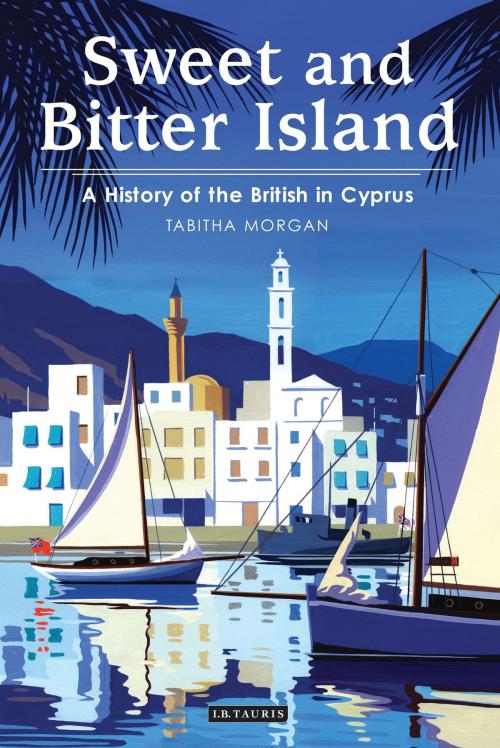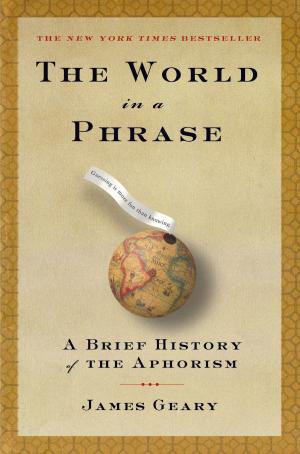Sweet and Bitter Island
A History of the British in Cyprus
Nonfiction, History, Greece, Social & Cultural Studies, Political Science| Author: | Tabitha Morgan | ISBN: | 9780857731029 |
| Publisher: | Bloomsbury Publishing | Publication: | June 30, 2010 |
| Imprint: | I.B. Tauris | Language: | English |
| Author: | Tabitha Morgan |
| ISBN: | 9780857731029 |
| Publisher: | Bloomsbury Publishing |
| Publication: | June 30, 2010 |
| Imprint: | I.B. Tauris |
| Language: | English |
On a sweltering day in July 1878, the men of the 42nd Royal Highlanders - the Black Watch - waded ashore at Larnaca Bay to begin the British occupation of Cyprus. Today, Britons on sunbeds colonise the same stretch of sand, the latest visitors to an island which has long held a special place in the English imagination - and a controversial role in British imperial ambitions.
From Britain's acquisition of the island in 1878 up to independence in 1960, a true understanding of the complexity of Cypriot society and its aspirations eluded most British administrators. In the late 19th century, the British worked furiously to outmanoeuvre a restless Russian Empire bent on southward expansion. In this 'Great Game' of superpowers, few episodes were bolder than the British acquisition of Cyprus through a secret treaty with the Ottoman Empire.
Initially considered strategically vital for the defence of India, the island soon lost its importance as a military staging post, when Britain occupied Egypt. Nevertheless, Cyprus became a major centre of Allied espionage and counter-espionage in both World Wars - a role that up to now has never been fully revealed.
But despite the island's importance, British rule on Cyprus was often somewhat lackadaisical: low salaries resulted in a colourful staff of hard drinking colonial rejects and scholarly classicists of independent means. Disastrous governance combined with a misunderstanding by the British of the growing desire for enosis, the union of Cyprus with Greece, contributed to increasing Cypriot disillusionment with British rule.
Drawing on largely unpublished material, Morgan reflects on why successive administrations failed so catastrophically to engage with their Cypriot subjects, and how social segregation, confusion about Cypriot identity and the poor calibre of so many administrators all contributed to the bloody guerilla conflict that led, finally, to Cypriot independence.
Sweet and Bitter Island explores for the first time the unique bond between Britain and Cyprus and the complex, sometimes tense, relationship between the two nations which endures to the present day. Extensively researched and lyrically written, this is the definitive portrait of British colonial life on the Mediterranean island.
On a sweltering day in July 1878, the men of the 42nd Royal Highlanders - the Black Watch - waded ashore at Larnaca Bay to begin the British occupation of Cyprus. Today, Britons on sunbeds colonise the same stretch of sand, the latest visitors to an island which has long held a special place in the English imagination - and a controversial role in British imperial ambitions.
From Britain's acquisition of the island in 1878 up to independence in 1960, a true understanding of the complexity of Cypriot society and its aspirations eluded most British administrators. In the late 19th century, the British worked furiously to outmanoeuvre a restless Russian Empire bent on southward expansion. In this 'Great Game' of superpowers, few episodes were bolder than the British acquisition of Cyprus through a secret treaty with the Ottoman Empire.
Initially considered strategically vital for the defence of India, the island soon lost its importance as a military staging post, when Britain occupied Egypt. Nevertheless, Cyprus became a major centre of Allied espionage and counter-espionage in both World Wars - a role that up to now has never been fully revealed.
But despite the island's importance, British rule on Cyprus was often somewhat lackadaisical: low salaries resulted in a colourful staff of hard drinking colonial rejects and scholarly classicists of independent means. Disastrous governance combined with a misunderstanding by the British of the growing desire for enosis, the union of Cyprus with Greece, contributed to increasing Cypriot disillusionment with British rule.
Drawing on largely unpublished material, Morgan reflects on why successive administrations failed so catastrophically to engage with their Cypriot subjects, and how social segregation, confusion about Cypriot identity and the poor calibre of so many administrators all contributed to the bloody guerilla conflict that led, finally, to Cypriot independence.
Sweet and Bitter Island explores for the first time the unique bond between Britain and Cyprus and the complex, sometimes tense, relationship between the two nations which endures to the present day. Extensively researched and lyrically written, this is the definitive portrait of British colonial life on the Mediterranean island.















